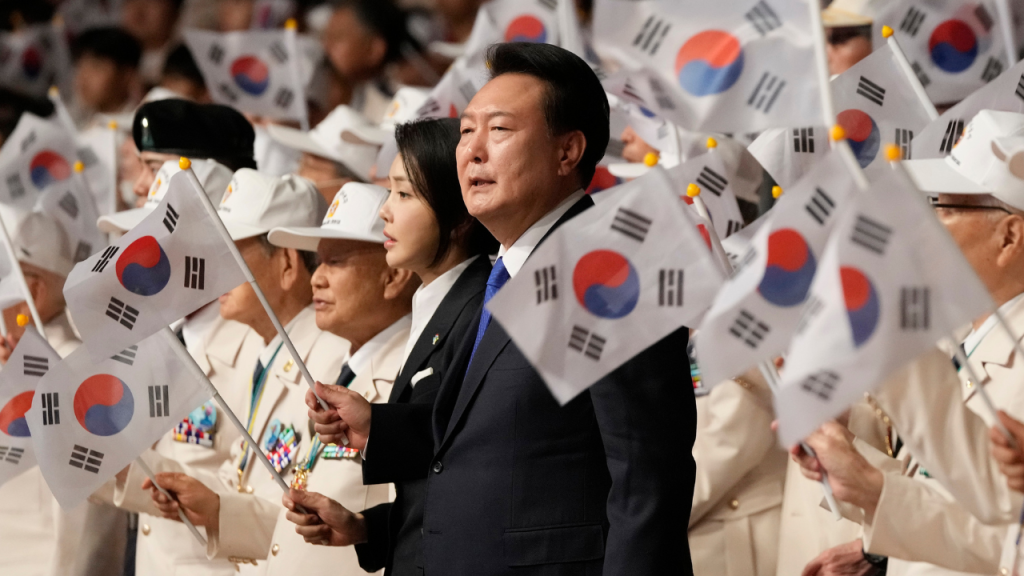In a significant political development, South Korean President Yoon Suk Yeol recently lifted his declaration of martial law after facing overwhelming opposition from lawmakers who voted against it. His declaration aimed to address what he described as “anti-state” forces, accusing the Parliament of exhibiting sympathetic tendencies towards North Korea. This maneuver sparked immediate protests outside the Parliament building, where citizens expressed their dissent, demanding the withdrawal of martial law. The contentious decision underscored the ongoing tensions between Yoon’s administration and the National Assembly, reflecting deepening divisions within South Korea’s political landscape.
Yoon’s martial law announcement was met with resistance not only from the opposition parties but also from key figures within his own political camp. Criticism came notably from the Parliament’s speaker as well as Han Dong-hoon, the leader of Yoon’s own party, who has been publicly disagreeing with the president on various issues. Such discontent suggests fractures within Yoon’s ruling party as it attempts to navigate the challenges presented by the liberal Democratic Party, which has maintained control over the National Assembly since Yoon assumed the presidency in 2022, leading to an increasingly polarized political environment.
Following the Parliamentary vote to revoke martial law, which saw the participation of all 190 lawmakers, military personnel stationed at the Parliament dispersed. The swift legislative action highlights South Korea’s constitutional mechanisms, which require the president to rescind martial law upon a majority parliamentary demand. This event also caught the attention of international observers, including U.S. officials, with Pentagon Press Secretary Maj. Gen. Pat Ryder indicating that U.S. Defense Secretary Lloyd Austin was actively monitoring the situation alongside South Korean military counterparts.
In his late-night televised address, Yoon justified his initial decision to declare martial law as a necessary step to uphold South Korean freedoms and maintain constitutional order. He claimed that the opposition had effectively seized control of the parliamentary process, plunging the nation into a state of crisis. Yoon asserted that the imposition of martial law was aimed at eradicating pro-North Korean elements that threatened the safety and freedom of the South Korean populace. His rhetoric evoked memories of past authoritarian regimes, reflecting an alarming return to tactics reminiscent of the country’s more oppressive historical chapters.
The president’s surprising move to enact martial law was indicative of the internal struggles he faces, including low public approval ratings and opposition party resistance to his agenda. Since Yoon took office, the liberal Democratic Party has consistently challenged his policies, which has resulted in significant political stalemate and instability. The rejection of his martial law declaration signifies the legislative body’s firm commitment to upholding democratic principles despite attempts to centralize power in the executive branch.
The consequences of this political crisis extend beyond mere factional disputes within Parliament; they raise broader questions about the future of South Korea’s democracy and its handling of national security threats, particularly from North Korea. With the precariousness of Yoon’s presidency juxtaposed against a backdrop of rising tensions on the Korean Peninsula, including instability posed by North Korean provocations, navigating this political impasse will be crucial for Yoon as he seeks to restore public confidence and steer the nation towards a more stable governance model. The unfolding events underscore the delicate balance needed to maintain democratic integrity while addressing significant security challenges.


